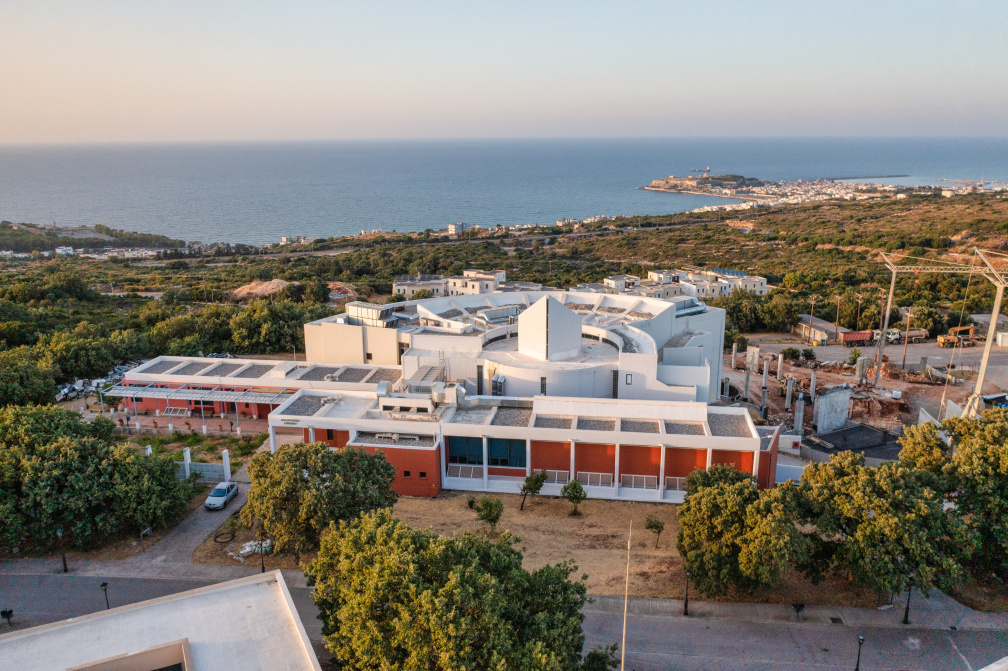Crete, the largest island in Greece, offers a rich tapestry of educational opportunities, reflecting its vibrant culture and historical significance. Whether you’re relocating to Crete with your family or considering higher education on the island, understanding the landscape of schools and universities is essential. This guide provides a comprehensive overview of the educational institutions available in Crete, from primary schools to universities, helping you make informed decisions about your educational journey.
Primary and Secondary Education
Public Schools:
The public school system in Crete, like the rest of Greece, is overseen by the Ministry of Education. Public schools are free for all students, providing a standard curriculum mandated by the government. Instruction is primarily in Greek, with English taught as a second language starting in primary school.
- Primary Education: Known as “Dimotiko,” primary education in Greece is for children aged 6 to 12. The curriculum includes subjects such as Greek language, mathematics, science, history, and physical education.
- Secondary Education: Divided into two stages—Gymnasium (ages 12-15) and Lyceum (ages 15-18). Gymnasium provides general education, while Lyceum offers both general and vocational tracks. Lyceum prepares students for higher education or the workforce.
Private and International Schools:
For expatriates and those seeking a more diverse curriculum, private and international schools are viable options. These schools often provide bilingual or entirely English-language instruction and follow different educational systems, such as the International Baccalaureate (IB) or British curriculum.
- European School of Heraklion: This international school offers a multicultural environment with programs from preschool to secondary education. It provides a bilingual curriculum (Greek and English) and follows the European Schools’ system.
- The English School of Crete: Located in Heraklion, this school offers the British curriculum, preparing students for IGCSE and A-level examinations. It caters to both local and expatriate families.
- International School of Crete: Situated in Chania, this school provides an international curriculum with instruction in English, catering to children from diverse backgrounds.
Higher Education
Crete boasts reputable higher education institutions that attract students from Greece and around the world. These universities offer a range of undergraduate and postgraduate programs across various disciplines.
University of Crete (UoC):
The University of Crete, with campuses in Heraklion and Rethymno, is one of Greece’s leading research universities. It offers a wide array of undergraduate, postgraduate, and doctoral programs in fields such as humanities, social sciences, natural sciences, medicine, and engineering.
- Heraklion Campus: Home to the School of Sciences and Engineering, and the School of Medicine. The Heraklion campus is well-known for its research facilities and close collaboration with the Foundation for Research and Technology – Hellas (FORTH).
- Rethymno Campus: Houses the Schools of Philosophy, Education, and Social, Economic, and Political Sciences. This campus is known for its vibrant academic community and scenic location.
Technical University of Crete (TUC):
Located in Chania, the Technical University of Crete specializes in engineering and technological disciplines. TUC is renowned for its research output and innovative programs in areas such as electrical engineering, environmental engineering, and computer science.
- Engineering Programs: Offers undergraduate and postgraduate degrees in various engineering fields, emphasizing research and practical application.
- Research and Innovation: TUC is involved in numerous national and international research projects, providing students with opportunities to engage in cutting-edge research.
Hellenic Mediterranean University (HMU):
With campuses in Heraklion, Chania, Rethymno, Agios Nikolaos, and Sitia, HMU offers a diverse range of programs focused on applied sciences and technology. It was formed by the merger of the Technological Educational Institute (TEI) of Crete and the School of Pedagogical and Technological Education (ASPETE).
- Applied Sciences: HMU provides undergraduate and postgraduate programs in fields like agriculture, food technology, health sciences, and business administration.
- Vocational Training: Emphasizes practical training and industry collaboration, preparing students for the workforce.
Extracurricular and Cultural Opportunities
Education in Crete is not limited to the classroom. The island’s rich cultural heritage and natural beauty provide a plethora of extracurricular opportunities.
- Cultural Activities: Students can engage in cultural activities such as traditional music, dance, and art. Many schools and universities organize cultural events and festivals celebrating Cretan heritage.
- Outdoor Activities: Crete’s diverse landscape offers numerous outdoor activities, from hiking and swimming to exploring archaeological sites. These activities are often integrated into school programs, promoting a balanced and holistic education.
Conclusion
Crete offers a robust educational framework catering to a wide range of needs and preferences. Whether you are seeking primary education for your children, international schooling options, or higher education opportunities, Crete’s educational institutions provide quality programs in a culturally rich environment. Understanding the landscape of schools and universities on the island will help you make informed decisions and ensure a fulfilling educational experience in this beautiful part of Greece.


